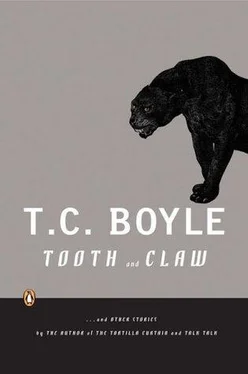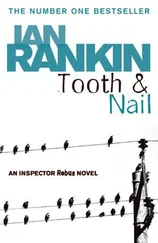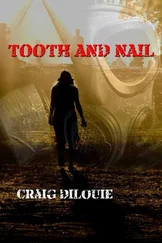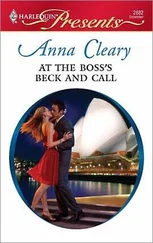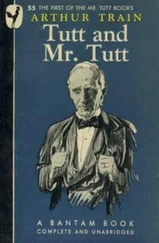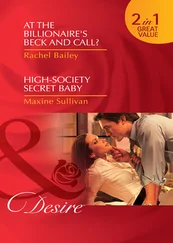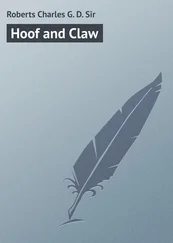IT WAS GETTING DARK when he made his way down to the beach, hoping to find Sky there, singing one of his Christmas songs, singing “Rudolph the Red-Nosed Reindeer” or “I Saw Mommy Kissing Santa Claus,” singing just for the sheer joy of it, because every day was Christmas when you had your SSI check in your pocket and an ever-changing cast of lubricated tourists to provide you with doggie bags of veal piccata and a fistful of change. He had a pint of Popov in one hand and a Big Mac in the other, and he was alternately taking a swig from the bottle and a bite of the sandwich, feeling good all over again. A police cruiser came down the street as he was crossing at the light, but the bottle was clothed in its brown paper bag and the eyes of the men behind the windshield passed over him as if he didn’t exist.
The cool breath of a breeze rode up off the water. He could hear the waves lifting and falling against the plane of the beach with a low reverberant boom, could feel the concussion radiating through the worn-out soles of his sneakers and up into his feet and ankles like a new kind of friction. The parking lot was deserted, five cars exactly, and the gulls had taken over as if he’d walked into that other movie, the Hitchcock one, what was it called? With Tippi Hedren? They were grouped at the edge of the pavement, a hundred of them or more, pale and motionless as statues. “Tippi, Tippi, Tippi,” he said aloud. “The Tipster.” There was a smell of iodine and whatever the tide had brought in.
He went from fire to fire on the beach, shared a swig of vodka in exchange for whatever the huddled groups were drinking, saw the guy with the broken glasses — Herbert, his name was Herbert — and a few other faces he vaguely recognized, but no Sky and no Pal. The night was clear, the stars alive and spread over the deepening sky all the way out to the Channel Islands and down as far as Rincón to the east. He shuffled through the still-warm sand in a kind of bliss, the second pint of vodka pressed to his lips, all the rough edges of things worn smooth, all his problems reduced to zero. He was going to find Sky, Sky his benefactor, the songbird, and see if he wanted a hit or two of vodka, and maybe they could sit around the fire and sing, order up another pizza, lie there and stare up at the stars as if they owned them all. It was early yet. The night was young.
The train gave him his first scare. He’d just come across the trestle and stepped to one side, careful of his footing in the loose stone, when the whistle sounded behind him. He was drunk and slow to react, sure, but it just about scared him out of his skin nonetheless. There was a rush of air and then the train — it was a freight, a thousand dark, clanking cars — went by like thunder, like war. He twisted his right ankle trying to lurch out of the way and went down hard in the bushes, but he held on to the bottle, that was the important thing, because the bottle — and most of it was left — was an offering for Sky, and maybe Knitsy too, if she was there. For a long while, as the sound of the train faded in the distance, he sat there in the dark, rubbing his ankle and laughing softly to himself — he could have been like the deaf-mute, somebody Dana would read about in the morning paper. Raymond Leitner, cut down by the southbound. After a week-long illness. Currently — make that permanently — unemployed. Survived by his loving mother. Wherever she might be .
When he got close enough to the camp to see the glow of candlelight suffusing the walls of the wigwam, he was startled by a sudden harsh shout and then Pal started barking, and there was movement there, framed against the drizzle of the light. “I said you ever touch her I’m going to kill your ass, because she’s my soulmate, you motherfucker, my soulmate , and you know it!”
Sky’s voice sang out, harsh and ragged, “Get off of me, get out of here, go on, get out!” And the barking. The barking rose to a frenzy, high-pitched, breathless, and then suddenly there was the dull wet thump of a blow, and the barking ceased, even as the movement shook the floating walls and the light snuffed out. “Here comes, you son of a bitch,” Dougie’s voice shouted out, “I’ll give you here comes,” and there was that wet sound again, the percussion of unyielding metal and yielding flesh, and again, and again.
Raymond froze. He took a step back in the dark, collided with something that shouldn’t have been there, a solid immovable shape stretched out across the flat of the ground — and the tarp, the tarp he’d slept on — and the ankle gave way. He went down again, and the bottle with him, the sudden explosion of its shattering like gunfire in the night. His blood raced. He felt around him for a branch, a rock, anything, and that was when his hands told him what it was he’d tripped over. Her hair was the first thing, then the slick cotton of the dress, and everything wet and cold.
The night went silent. He couldn’t see, all the shadings of uncommitted dark swelling and shrinking around him. A shadow rose up then out of the black pool of the ground no more than twenty feet away, rose to full height, and began to slash at the darkness where the wigwam would have been, and Dougie was cursing, raging, beating at everything in the night till the galvanized post rang out against the stones. Raymond was no longer drunk. He didn’t move, didn’t breathe. The post rose and fell till the shadows changed shape and the curses subsided into sobs and choked, half-formed phrases, to barks and whispers, and then there was another sound, the clangor of the post flung away against the stones of the railway bed and a new metallic sound, the whirring of gears, and suddenly the shadow was moving off down the deserted tracks on the dark skeleton of a mountain bike.
IT TOOK HIM NEARLY an hour, hobbled by the ankle that felt as if it had been snapped off the bone, sharpened to a point and jammed back in again, an hour treading along the railway ties, through the sand, up the sidewalks still full of safe, oblivious people passing from one appointment to another. He just kept walking, rotating up off the bad ankle, and they saw his face and stood aside for him. Dogs barked. Cars shot past. There were shouts and voices in the night. He had never been down there by the railroad tracks, never been to any bum’s encampment, never passed a bottle with a bunch of derelicts, and there’d never been any question in his mind about going to Sky’s aid or calling the police or anything else. He was just walking, that was all, walking home. And when he got there, when he saw Dana just getting out of her car, her face softened with drink and her hair newly cut, cut short as an acolyte’s, he got down on his knees and crawled to her.
All the Wrecks I’ve Crawled Out Of
ALL I WANTED, really, was to attain mythic status. Along the lines, say, of James Dean, Brom Bones, Paul Bunyan, my father. My father was a giant among men, with good-sized trees for arms and fists like buckets of nails, and I was not a giant among men. I wasn’t even a man, though I began to look like one as I grew into my shoulders and eventually found something to shave off my cheeks after a close and patient scrutiny, and I manfully flunked out of three colleges and worked at digging graves at the Beth-El cemetery and shoveling chicken shit at the Shepherd Hill Egg Farm till I got smart and started bartending. That was a kind of wreckage, I suppose — flunking out — but there was much more to come, wrecks both literal and figurative, replete with flames, blood, crushed metal and broken hearts, a whole swath of destruction and self-immolation, my own personal skid marks etched into the road of my life and maybe yours too.
So. Where to start? With Helen, I suppose, Helen Kreisler. She was a cocktail waitress at the restaurant where I was mixing drinks six and a half days a week, four years older than I when I met her — that is, twenty-seven — and with a face that wasn’t exactly pretty in any conventional sense, but more a field for the play of psychodrama, martyrdom and high-level neurosis. It was an old face, much older than her cheerleader’s body and her still relatively tender years, a face full of worry, with lines scored around her eyes and dug deep into the corners of her mouth. She wore her hair long and parted in the middle, after the fashion of the day, and her eyes — the exact color of aluminum foil — jumped out of her tanned face from a hundred feet away. They were alien eyes, that’s what I called them. And her too. Alien , that was my pet name for her, and I used it to urge her on when she was on top of me and my hands were on her breasts and her mouth had gone slack with the feeling of what I was doing to her.
Читать дальше
